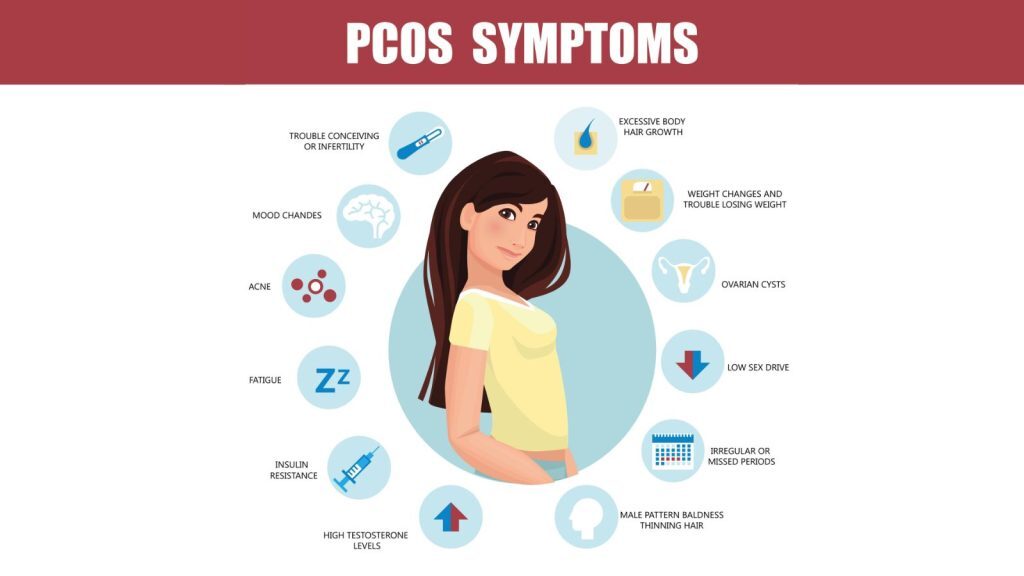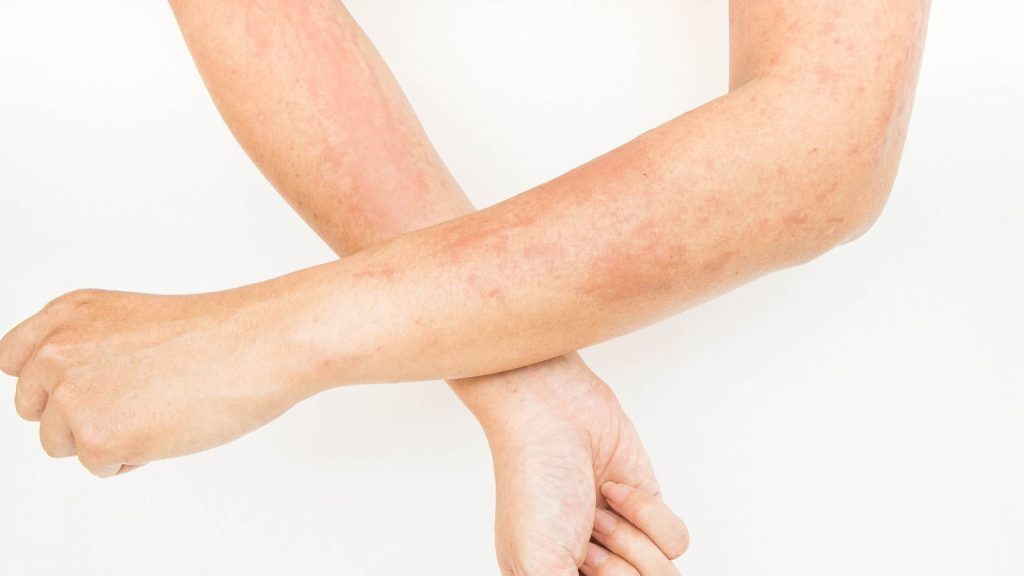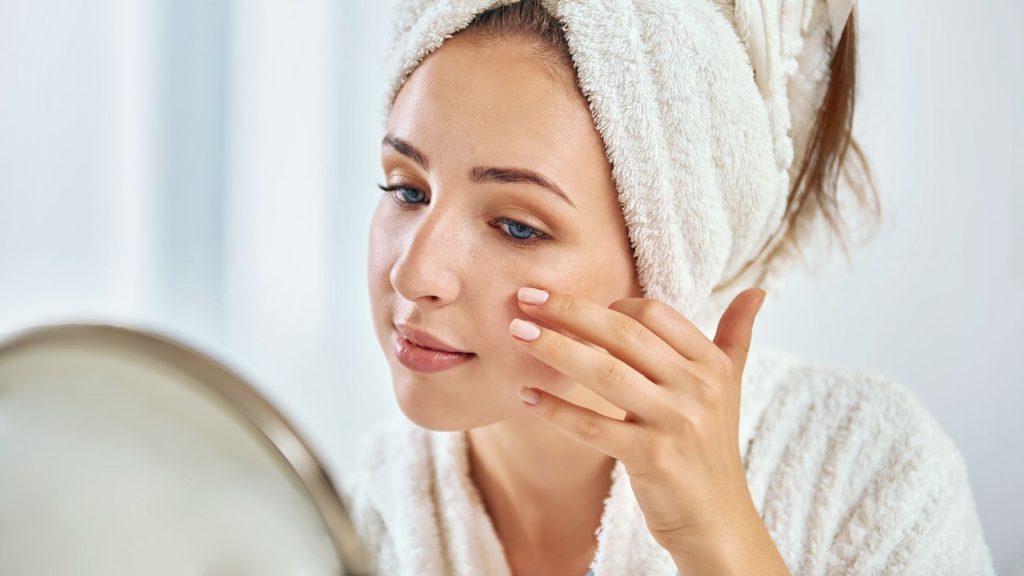PCOS, a hormonal disorder, impacts approximately 10-15% of women in their reproductive years. While there are numerous physical and mental health symptoms related to PCOS, one rather embarrassing symptom that often goes unrecognized is body odor.
Although it may be uncomfortable to talk about, understanding the reasons behind it can aid in resolving this problem. In this post, we’ll talk about what causes PCOS body odor and discuss how you can take proactive steps to prevent or treat it.

Patients may experience abnormal menstrual cycles with missed periods or skip between light and heavy flows. With PCOS, levels of reproductive hormones like testosterone may become irregular, causing other hormonal issues like acne and abnormal body hair growth.
PCOS in women can lead to fertility issues, weight gain from insulin resistance, hair thinning, skin hyperpigmentation, and mood changes.
Some of the typical signs of PCOS are irregular menstrual cycles, fluctuations in weight, abnormal hair growth on the body and face, skin problems like acne, challenges with fertility, and male-like hair loss patterns.
In case you are consistently encountering any of these symptoms without a known cause, it is crucial to consult your doctor for testing to determine if you have PCOS.
In many cases, PCOS body odor is caused by an imbalance in hormones like testosterone or estrogen. Disruption in the equilibrium of these hormones can trigger heightened perspiration and sebum secretion, culminating in a potent body scent.
Furthermore, women diagnosed with PCOS may also encounter elevated levels of cortisol, the hormone that induces stress, leading to an augmentation in perspiration and body scent.
- Wear loose-fitting, breathable clothing.
- Avoiding tight-fitting clothing, such as yoga pants or Spanx.
- Wear natural fibers, such as cotton or linen.
- Avoiding synthetic fibers, such as polyester or nylon.
- Wear light colors.
- Avoiding dark colors.
- Wash your clothes regularly.
- Use a mild soap and avoid using fragranced products.
- Rinse your clothes thoroughly after washing them.
- Hang your clothes to dry in a well-ventilated area.
- Consider using a deodorant or antiperspirant specifically designed for people with PCOS.

PCOS affects hormonal balance, so many people with PCOS find that they need to pay closer attention to their hygiene.
Your doctor will be able to provide insight and advice on the best ways for you to keep your body odor in check, as well as help you understand what might be triggering any changes in your natural scent.
There are treatments available for PCOS body odor. Controlling PCOS body odor involves diet and lifestyle changes: avoid processed foods, opt for complex carbs, and stay well-hydrated.
Additionally, natural treatments such as essential oils or teas can be beneficial in reducing the intensity of PCOS body odor.
If body odor caused by PCOS becomes severe, it is advisable to seek medical advice in order to determine the root causes and establish a suitable course of treatment.
This type of odor can be significantly reduced or even avoided by implementing various lifestyle changes.
To manage PCOS body odor, follow a balanced diet with fruits and veggies, skip alcohol and processed foods, exercise, manage stress, and use antiperspirants.
PCOS body odor may be an indication of an underlying medical issue that needs to be addressed. Watching your diet, avoiding foods known to trigger PCOS symptoms, and exercising regularly can all help keep PCOS-related body odor under control.
Depending on the underlying cause of PCOS body odor, your doctor may recommend additional treatments such as medication or homeopathic remedies to help reduce PCOS odors significantly.
Managing PCOS-related body odor requires prioritizing stress reduction. Stress has been linked to an increase in cortisol levels which can trigger increased sweat production and lead to stronger odors.
Engaging in daily activities that bring you relaxation, such as reading a book or going for a walk outdoors, can effectively lower your stress levels and consequently diminish any unpleasant odors linked to PCOS.
Engaging in yoga or meditation not only promotes better health but also serves as an effective stress management technique.
Improving hormone balance includes dietary shifts (less sugar, more lean proteins), while managing symptoms involves stress reduction via yoga or meditation.
With proper management techniques—and some patience—you can find relief from bothersome PCOS-related body odor!

PCOS sufferers may experience more strong, more unpleasant body odor than those who do not have PCOS due to increased levels of testosterone and other hormones necessary for ovulation.
PCOS can’t be treated solely with medication. Lifestyle changes—healthy eating, regular exercise, stress reduction—can regulate hormones and potentially alleviate associated body odor.
PCOS has many symptoms, yet one of the lesser-known symptoms is excessive sweating. PCOS-related sweat often does not respond well to deodorant because PCOS also affects body odor.
This can lead to uncomfortable moments for PCOS sufferers in situations involving physical activity or getting hot and bothered. For PCOS sufferers looking for a more effective solution, special antiperspirants may be available from your doctor.
Treatment options will vary, so it’s best to consult with your physician to learn more about what works best for your individual condition.
Common PCOS symptoms, such as irregular periods and weight gain, are more easily identified than other signs like infertility, hirsutism, and changes in body odor.
For example, PCOS can cause an increase in body odor which can be difficult for sufferers to detect, as it is not as obvious as other symptoms.
Recognizing these hidden indicators of PCOS and having regular visits with your doctor can help start treatment early to reduce future health risks.
The key to recognizing PCOS getting worse is familiarizing yourself with the key symptoms. PCOS usually consists of intense hair growth, irregular periods, and ovarian cysts, but those are just the beginning.
PCOS sufferers may also experience excessive body odors as well as depression, anxiety, and sleep disorders. By staying on top of these warning signs, it’s easy to tell if PCOS is worsening.







